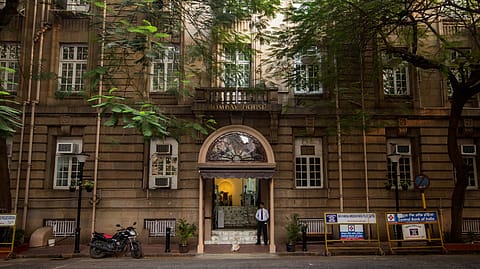SP Group submits share-swap plan for parting with Tata
Group suggests being given pro-rata shares in listed Tata entities as part of settlement to end bruising corporate battle.

The Shapoorji Pallonji (SP) Group of the Mistry family has put forward a plan for its separation from the Tata group, suggesting it be given shares in listed Tata entities as part of the settlement. The SP Group holds 18.4% in Tata Sons, the holding company of the House of Tata.
In a statement on Monday evening, the SP Group, which has been engaged in a bruising feud with Tata ever since Cyrus Mistry was unceremoniously removed from the chairmanship of Tata Sons in 2016, said the share swap suggestion was a part of the separation plan submitted by the group in the Supreme Court. The SP Group spelt out various contours of the plan and how it could also make things easy for the Tata group.
As a non-cash settlement, the SP Group has suggested it be given pro-rata shares in listed entity(ies) of the Tata Group where Tata Sons currently owns stake. As an example, it pointed to the 72% stake in Tata Consultancy Services (TCS) owned by Tata Sons. "SP Group’s ownership of 18.37% translates to 13.22% shareholding of TCS (valued at [about] ₹1,35,000 crore at present market capitalisation of TCS)," the statement said.
The Tata group has not reacted to the Mistry statement and plan.
The SP Group of the Mistrys had in September indicated that they were willing to exit the $113-billion Tata group by way of a formal settlement. A settlement, if arrived at, would mark the end of this bitter battle which has been the subject of intense discussion in corporate India for four years. The two sides would also have to agree on the valuation of the SP Group's stake in Tata Sons.
Underscoring its view that its 18.4% stake in Tata Sons was, in its view, valued at about ₹1.75 lakh crore, the SP Group said "disputes over valuation can be eliminated by doing a pro-rata split of listed assets (share price value is known) and pro-rata share of the brand (brand valuation already done by Tata and published)." A neutral third-party valuation can be done for the unlisted assets adjusted for net debt (i.e. debt less cash), it said.
"Pro-rata share of brand value adjusted for net debt (i.e. debt less cash and cash equivalents) can be settled in cash and/or in listed securities. For the unlisted companies, an expedited valuation can be done with a valuer selected by both sides." This can be settled in cash and /or in listed securities, the SP Group suggested.
Recommended Stories
The Mistrys said that a pro-rata separation of assets and liabilities would be a fair and equitable solution to all stakeholders. Besides, a largely non-cash settlement would ease pressure on Tata to raise large quantum of debt.
The group said the scheme proposed by it also minimizes any dispute on valuation because the value of listed companies is based on last traded price which is published daily; the value of the brand as per the latest valuation report done by Tata, and the value of unlisted companies can be taken at book value or through a valuation process and adjusted for net debt (i.e. debt less cash on hand). Besides, Tata Sons would continue to have control over the underlying assets (and over 51% stake in TCS).
The SP Group also pointed out that the scheme was beneficial to Tata companies and that "a similar scheme can also be used to provide liquidity to the Tata Group companies, who have cross-holdings in Tata Sons. (Value to companies by unlocking cross holdings would be in excess of ₹1 lakh crore, and would benefit millions of shareholders)." It would also be quicker to implement with minimal disruption to operating companies, the statement added.
While it is not known how, or whether, the Tata group would react to the SP Group's plan, corporate watchers and legal circles are also adopting a wait-and-watch approach as the battle between the two sides enters what is clearly a decisive lap.
(INR CR)
H.P. Ranina, long-time Tata watcher and corporate lawyer told Fortune India that the case before the Supreme Court related to appeals against earlier rulings of the National Company Law Appellate Tribunal in the dispute between the two sides. "It is unlikely that the court will entertain this plan since it has nothing to do with the legal case pending before it. Also, the Tatas must agree," Ranina said.